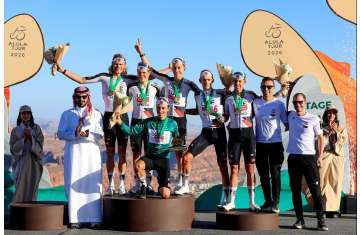I fell in love with the artist Abdel Halim Hafez since I first heard him in elementary school and was strongly drawn to him because of his captivating and touching voice. His voice was warm, sometimes delicate and sometimes powerful, making it easy for people to connect with him.
Abdel Halim would sacrifice his health for the sake of pleasing his art lovers, with genuine performance and dedication to his craft. He could delight and move you with his music. The sweet melody he created will always echo in the ears of millions of listeners, marking a distinctive milestone in the history of Arabic singing.
Abdel Halim introduced various styles of songs, including light, rhythmic, short, long dramatic, show tunes, situational songs, stories, operettas, and cinema songs. He also presented romantic, national, religious, social, descriptive, popular, and special occasion songs. His repertoire includes nearly 300 songs, all marked by sincerity, emotion, and passion.
Abdel Halim's connection to Sharqia ran deep in his veins, and he often spoke in the Sharqia dialect in most of his conversations and meetings. He frequently visited the city of Zagazig, where he was raised and educated. He would gather with Sharqia's merchants, urging them to donate to the establishment of Zagazig University, to ease the burden of his fellow citizens who wanted to continue their university studies without the hassle and hardship of traveling to Cairo.
He also held concerts in Sharqia for the benefit of building Zagazig University, which has now become an educational institution at the Arab and international levels. He also contributed to the construction of the health unit in the village of Al-Halawat and the construction of one of its major mosques, Al-Mashayekh Mosque, which is now affiliated with the Ministry of Awqaf.
Today, the governorate of Sharqia should honor its son, artist Abdel Halim Hafez, who left his mark on people's hearts, especially among the Sharqia people and the emotions of all people in Egypt and the Arab world. He was part of the artistic and political movement in Egypt.
It is time to name one of the main streets in Zagazig after him, erect a statue in one of the public squares, and name one of the cultural houses in Sharqia after him.
In 1993, a society called Lovers of Abdel Halim Hafez was established, with me as its president. The society aims to hold cultural, artistic, and literary seminars and conferences, care for orphaned children, honor prominent figures, shed light on national and societal issues, and sponsor an arts salon to nurture up-and-coming talents in various fields, including singing, poetry, literature, and journalism.
With the grace of Allah, the association was established thanks to God Almighty and the group of loyal friends who contributed to the completion of the work and the realization of the idea. Notably, Dr. Abdel-Wahab Sayed Ahmed, former governor of Sharqia, and the great writer Professor Fakhry Fayed (the spiritual father), the great writer Thorwat Abaza, deputy of the Shura Council and the honorary president of the association, Professor Said El-Kilany, the general director of media at Zagazig University and lecturer in education colleges and missionary institutes, and Professor Alia Hussein.
Professor Mohamed Abu Talib, former deputy minister of social affairs, director Salah Mara, general director of Sharqia culture, counselor Moataz Rizk, counselor Fawzy Gouda Behery, Dr. Mahmoud Metwally, president of the local popular council, literary figure Bahy El-Din Awad, general director of Sharqia culture, Dr. Ahmed Maher Ezz, dean of the Faculty of Specific Education.
Accountant Ali Bandary, former president of the popular council of Zagazig city, Professor Mohamed El-Moslimy, assistant general secretary of the governor of Sharqia, Dr. Ahmed Abu Al-Rous, president of the Regional Federation of Associations, Dr. Mostafa Nawar at the Faculty of Agriculture, Zagazig University, media figure Dr. Gilan Hamza, and Dr. Osama Badr, former president of the local council of Zagazig center.
Among the most prominent figures who participated in the association's activities are accountant Mamdouh Ghareeb, singer Shaza, singer Garam, media personality Salwa El-Badry, Professor Hisham El-Badry, writer Fatima El-Zohairy, Dr. Hassan Rabei, dean of the Faculty of Agriculture and former member of the House of Representatives, and Dr. Mostafa El-Tambondawy at the Ministry of Agriculture.
The association includes a large elite of stars of art, journalism, and literature, such as journalist Mahmoud Abdel-Hamid, journalist Amal Rabei, and Dr. Essam El-Ayedi.
The association's work fields include cultural, scientific, and religious services, pensioners, family care, family planning, environmental rights and conservation, human rights, social defense, literary activity, economic development, friendship between peoples, health services, social assistance, special groups, people with disabilities, consumer protection, childcare, motherhood, elderly care, and educational services.
The objectives of the association of Abdel Halim Hafez's fans came to achieve noble purposes; to serve the society and environment that rely on love and cooperation for our beloved homeland.

Comments